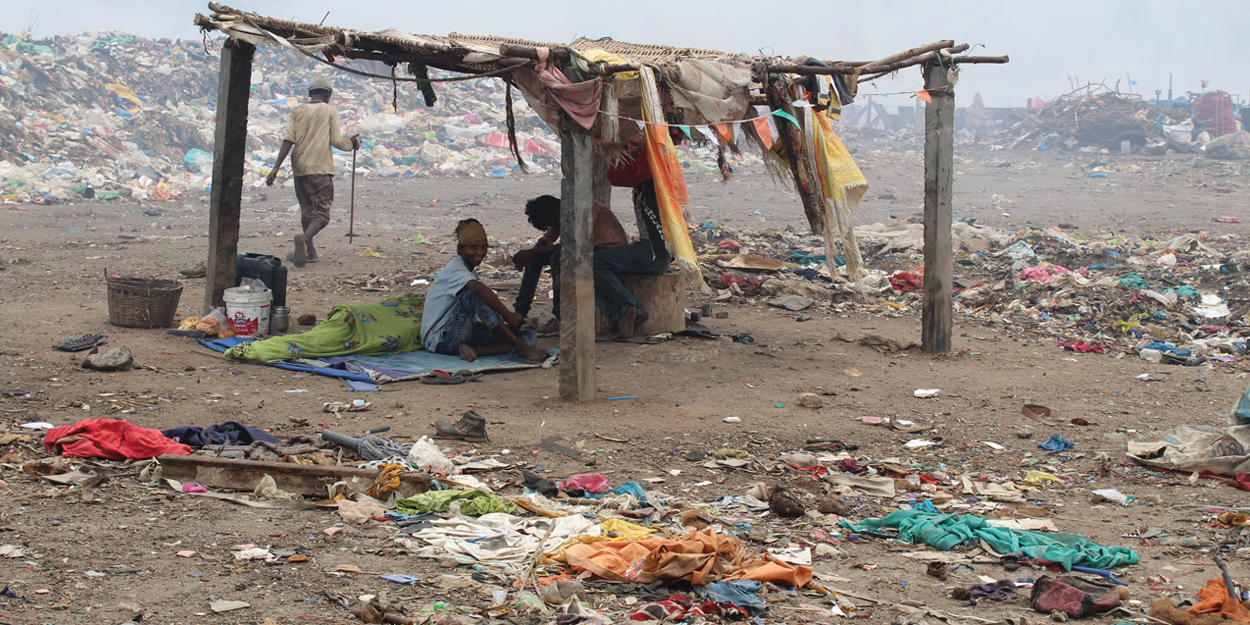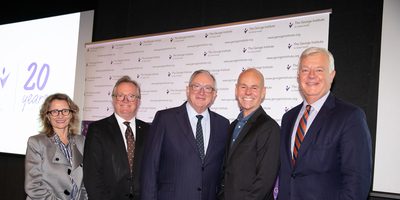
20 years of making a difference
Health economics is now a key part of The George Institute's work. Professor Stephen Jan explains how its importance and impact has evolved over the years.
Health economics was not considered a key element of research when The George Institute was established in 1999. No longer. Today almost all of the Institute's work involves some economic analysis.
"When I joined the Institute in 2005 there was no health economics research program," says Stephen. "Up to that point, the Institute's reputation rested on undertaking large clinical trials and trialing new treatments. There was little emphasis on health services, health systems or health economic analysis."
"So a good part of my work early at the Institute was simply to raise awareness about the importance of health economic analysis and of including it in the design phase of the research programs."
Today, the crucial role that health economics plays in informing research is well understood at the Institute. At its core is an insistence that any healthcare innovation must unequivocally demonstrate value for money.
"It's one thing to say 'it works' but quite another to say whether money should be spent on it,” he says. “So when we do a clinical trial, the primary question is whether the new drug, medical device or medical procedure is effective. If so, the next question is whether it represents value for money. To assess this, we collect data on the costs and effectiveness of the new initiative, compare it to the alternatives, and then recommend whether it makes sense to switch."
Stephen's work has involved designing new ways to fund health care that not only enable healthcare systems to become more sustainable, but also operate more equitably.
This approach to advocating for change based on health economics research findings has already had a profound impact. The Institute's ACTION study followed 9,513 cancer patients through their first year after diagnosis to determine the economic impact of the disease on households in eight Southeast Asian countries. It demonstrated that patients in low- and middle-income countries were obliged to pay much of the cost of cancer treatment, if not all of it.
“A crucial element of ACTION was to focus not only on the burden of households accessing care, but also the rates of cancer treatment discontinuation," explains Stephen.
This meant a very strong direct association could be made between cancer patients that stopped treatment and their level of health insurance coverage and socio-economic status.
“ACTION was the first of its kind to examine the human cost of cancer to help governments improve access to cancer care and reduce the burden of costs associated with the illness,” he says.
The policy impact of this research has been extensive. It was acknowledged in the Philippines Senate during the passing of the National Integrated Cancer Control Act, which provided subsidies for treatment and expanded the services available throughout the country; in successful advocacy efforts to exempt cancer drugs from a goods and services tax in Malaysia; and in the development of cancer treatment guidelines and reimbursement decisions for cancer drugs in Indonesia.
Stephen and his team’s work is also contributing to discussions at the highest levels regarding the global push for universal health coverage. In 2018, they identified some of the economic issues surrounding non-communicable disease in low- and middle-income countries.
“I think that work has been quite influential in recent global discussions around the funding of non-communicable diseases,” he says. “In 2018 and 2019, our work was used to inform discussions at the annual United Nations General Assembly High-level Meetings on Non-communicable Diseases and on Universal Health Coverage. Part of our message has been that a key responsibility of governments and health systems around the world is to protect individuals and families from the high costs of diseases such as cancer and heart disease.”
Another relatively new area of the Institute’s research is exploring the impact environmental factors have on the development and progression of illness. Researchers are using existing and pioneering methods to find patterns in large-scale data and gather information about the impact of urban settings on health.
By harnessing the concept of cities as data networks in which feedback can be crowdsourced through, for example, monitoring wearable sensors, research can support the evidence-based design and implementation of healthier, safer, more equitable and sustainable urban spaces.
However, for Stephen, the growing recognition of the importance of health economics in translating research to policy and impact has been particularly gratifying.
“Most researchers go into research not just with the ambition of publishing papers and being recognised by their peers, but of making a real difference,” he says. “We’ve been able to expand and harness our work in health economics to increasingly address the needs of the most disadvantaged around the world, which is probably the most rewarding part of the work that we do.”
Celebrating 20 years: Stephen's top moments
- Wide-reaching impact: “The impact we have is on policy, on clinical practice and ultimately on the lives of people.”
- The recognition of the importance of health economics: “Health economics and process evaluation are recognised as a really important component of research and are having an increasingly significant role in all the research we do across the Institute.”
- Informing national policy: “The ACTION study helped to frame the Integrated Cancer Services Act in the Philippines.”


